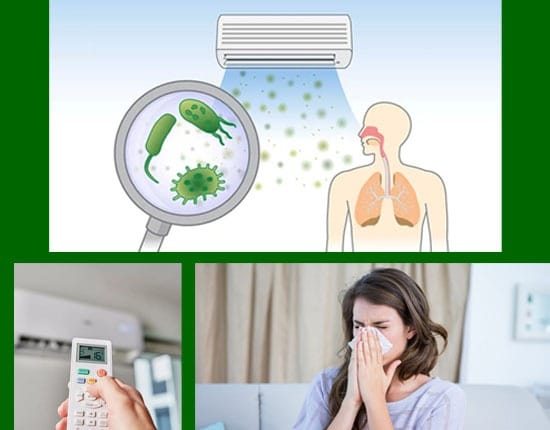- +91 9163-156-156
- info@allergyandasthmacentre.com
- Clinic : 10:00AM To 06:00 PM

How To Avoid AC Allergy?
As the temperatures rise, air conditioning provides welcome relief. However, when not properly managed, it can also cause a range of allergies. To avoid any allergies it becomes necessary to maintain a well-functioning and clean cooling system.
By keeping vents clean and regularly changing filters, one can ensure proper humidity levels. This can greatly reduce the risk of allergens circulating through the air.
Allergies Triggered By Air Conditioning
Air conditioning can trigger or worsen allergies. This happens because AC units can accumulate dust and dirt. This gets blown into the air when the system runs, leading to sneezing and itchy eyes. Additionally, if an AC system isn’t kept clean, it can grow mold. The spores then spread and aggravate allergy symptoms.
To prevent these issues, regularly clean or replace the AC filters to reduce dust and allergens. Make use of a dehumidifier to prevent mold growth. You should also have your AC system professionally maintained. Adding an air purifier with a HEPA filter and occasionally ventilating your home by opening windows can further improve air quality and comfort. This will help to minimize allergy problems associated with air conditioning.
Tips To Prevent AC Allergy
Here is a list of tips that you can use for preventing an AC allergy:
1. Clean And Replace Filters
The filters of your AC catch pollen, dust and other allergens. If you do not clean/replace them frequently, then the allergens can build up. It then blows into your home. Aim for cleaning or swapping out filters every 1-3 months to keep the air in your home fresh and clear.
2. Keep Vents Clean
Dust and mold gather on parts of the AC system which cool the air and blow into your home. It is probably a good idea to clean these regularly. This will stop the allergens from spreading. You can either do this yourself or even get a professional for help.
3. Maintain An Optimal Humidity
Sometimes, AC units make the air either too dry or damp. By using a dehumidifier, you can help in keeping the moisture level in your home right. It would be ideal to keep the level between 30% and 50%. This will help in keeping the dust mites and mold at bay.
4. Use High-Efficiency Air Purifier
An air purifier that has a HEPA filter can help in cleaning the air of your home. They catch tiny particles which your AC might miss. You can place one in your main living area for reducing allergens and making the air cleaner.
5. Ensure Proper Ventilation

It would be helpful to let fresh air into your home now and then. You can open your windows when the outdoor air quality is good. This will get rid of indoor pollutants and bring in fresh air. It will also help in preventing stale air from making allergies worse.
6. Clean Nearby Areas
Dust can settle on furniture, carpets, and on other surfaces. Make sure to vacuum these areas regularly for removing dust and allergens. A vacuum that has HEPA filters would be the best as it will be able to trap small particles which other vacuums might miss.
Keep reading till the end to find out more information on it!
7. Address Mold Issues Promptly
Mold grows in damp areas around your AC unit. It could also grow elsewhere in your home. If you see mold, then clean it up as soon as possible. This will help prevent the mold from spreading and causing allergy issues.
8. Monitor And Maintain An Ac Unit
Have your AC system checked by a professional at least once every year. They can make sure that everything is working properly. They will also be able to check for issues in ACs which cause allergies at your home.
9. Stay Hydrated And Healthy
Eating a balanced diet and drinking plenty of water is essential for keeping the immune system strong. A healthy body is afterall much better at fighting off allergies. Hence, staying hydrated and eating well can make a difference.
10. Avoid Smoking Indoors
Smoking indoors greatly impacts indoor air quality and breeds allergies. Tobacco smoke contains a mixture of harmful chemical irritants which triggers respiratory issues and allergic reactions. They also cause respiratory issues.
If you smoke, then do it in a designated outdoor area away from doors and windows to prevent smoke from entering the living space.
Conclusion,
Avoiding AC-related includes a multi-faceted approach. It involves maintaining a well-regulated and clean environment. By regularly replacing and cleaning filters, you can prevent the buildup of allergens and ensure an optimal air quality.
Make sure to keep your AC system well-maintained with professional inspections to avoid dust accumulation and mold. By taking proactive steps, you can create a more comfortable living environment and minimize the risk of AC-related allergies. Don’t hesitate to contact us – your comfort and well-being are our top priorities!

